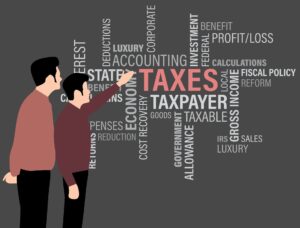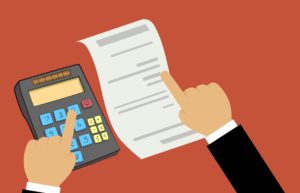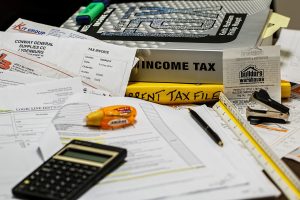Blog
Posted August 12, 2025
A Simple Guide to Self-Assessment: Who Needs to File and Why
Self-assessment can feel like a maze of rules and deadlines, leaving many people confused about whether they need to file a tax return at all. With the 2024-25 self-assessment deadline approaching in January 2026, now is the perfect time to understand who needs to complete a return and why HMRC requires it.
Whether you’re employed, self-employed, or have multiple income sources, this guide will help you determine if you need to file a self-assessment return and explain the key reasons behind HMRC’s requirements.
What is Self-Assessment?
Self-assessment is the system HMRC uses to collect Income Tax and National Insurance contributions from people whose tax affairs can’t be dealt with through PAYE (Pay As You Earn) alone. Instead of HMRC calculating your tax bill, you (or your accountant) work out how much tax and National Insurance you owe and report this to HMRC.
The system covers the tax year from 6 April to 5 April the following year. So the 2024-25 tax return, due by 31 January 2026, covers income and gains from 6 April 2024 to 5 April 2025.
Who Must File a Self-Assessment Return?
Self-Employed Individuals
If you’re self-employed as a sole trader, you must register for self-assessment and file a return each year, regardless of how much you earn. This includes:
- Freelancers and consultants
- Tradespeople working on their own account
- Online sellers with regular income (beyond casual sales)
- Anyone running their own business without incorporating
Why? HMRC needs to know about business income and expenses that aren’t captured through PAYE, and you need to pay National Insurance contributions.
 Company Directors
Company Directors
All company directors must complete self-assessment, even if the company is dormant or they don’t take a salary.
Why? Directors have complex tax affairs that often involve salary, dividends, benefits in kind, and potential liability for company debts. HMRC needs visibility of all director income to ensure correct tax treatment.
Multiple Income Sources
If you have income from employment plus other sources totalling more than £1,000, you likely need to file a return. This includes:
- Rental income above £1,000 per year
- Dividends above £500 per year (after the dividend allowance)
- Savings interest above £1,000 (basic rate taxpayers) or £500 (higher rate taxpayers)
- Income from freelance work or consultancy
Why? PAYE can only handle employment income efficiently. Additional income sources require separate calculation and often different tax treatment.
 Capital Gains
Capital Gains
You must file if you’ve made capital gains above the annual exempt amount (£3,000 for 2024-25) or if you’ve sold assets worth more than four times the annual exempt amount (£12,000 for 2024-25), even if you haven’t made a gain.
Why? Capital gains tax operates separately from income tax and has its own rates and allowances that need to be calculated and reported.
Child Benefit Recipients
If you or your partner receive Child Benefit and either of you has income over £60,000, the higher earner must file a return to pay the High Income Child Benefit Charge.
Why? The charge claws back Child Benefit through the tax system when your income exceeds £60,000, requiring self-assessment to calculate the amount due.
Who Might Need to File (Common Situations)
Ministers of Religion
Clergy and ministers usually need to file due to the complex mix of employment income, fees, and expenses they typically receive.
People with Foreign Income
If you’re UK resident but have foreign income above £2,000, or any foreign income if you’re claiming the remittance basis, you’ll need to file.
Those Claiming Tax Relief
You might need to file to claim certain types of tax relief, such as:
- Gift Aid payments above the basic rate
- Pension contributions where you haven’t received full tax relief
- Professional subscriptions and job-related expenses above £2,500
Trustees and Personal Representatives
If you’re a trustee of a trust or dealing with someone’s estate, you may need to complete additional tax returns.
 Who Probably Doesn’t Need to File
Who Probably Doesn’t Need to File
Basic PAYE Employees
If you’re employed, and have no other significant income sources, and all your tax is deducted through PAYE, you probably don’t need to file.
State Pension Only
If your only income is the State Pension and it’s below the personal allowance (£12,570 for 2024-25), you don’t need to file.
Small Savings Interest
If you only have small amounts of savings interest within your Personal Savings Allowance, this doesn’t require a return.
Key Deadlines to Remember
- 31 October 2025: Deadline for paper returns (2024-25 tax year)
- 31 January 2026: Deadline for online returns and payment of any tax due
- 31 July 2026: Deadline for second payment on account (if applicable)
The Consequences of Not Filing
Missing the self-assessment deadline can be costly:
- £100 automatic penalty for returns filed after 31 January
- Additional penalties if the return is more than 3, 6, or 12 months late
- Interest charges on any unpaid tax
- Potential prosecution in serious cases of persistent non-compliance
Getting Help
The rules around who needs to file can be complex, and everyone’s situation is different. If you’re unsure whether you need to complete self-assessment, it’s worth getting professional advice rather than risking penalties.
Common signs you should seek help include:
- Complex income sources
- Uncertainty about expense claims
- Foreign income or assets
- Recent changes in employment status
- Property investments or disposals
Making Self-Assessment Easier
If you do need to file, here are some tips to make the process smoother:
- Keep good records throughout the year – don’t leave everything until January. Maintain files for income, expenses, and relevant documents.
- Use accounting software – many cloud-based systems can categorise transactions automatically and integrate with self-assessment.
- Consider professional help – the cost of an accountant often pays for itself through time saved, stress reduced, and potential tax savings identified.
- File early – don’t wait until the last minute. Filing early gives you time to address any issues and avoid the January rush.
The Bottom Line
Self-assessment exists because the UK tax system recognises that not everyone’s tax affairs can be handled through simple PAYE deductions. If you have income sources beyond basic employment, earn above certain thresholds, or have complex financial arrangements, HMRC needs additional information to calculate your correct tax liability.
The key is understanding whether your circumstances require a filing and acting accordingly. When in doubt, it’s better to file unnecessarily than to miss a requirement and face penalties.
Remember, self-assessment isn’t just about paying tax – it’s also an opportunity to claim reliefs and allowances you might be entitled to. Many people discover they’re owed a refund when they complete their first return properly.
Unsure whether you need to file self-assessment? Our experienced team can review your circumstances and guide you through the process. Contact us today for a consultation and take the stress out of tax compliance.
SERVICES
LATEST NEWS
CATEGORIES
- Blog (160)
- Business Advice (56)
- Just For Fun (17)
- Tax Tips (45)
- Video (8)











